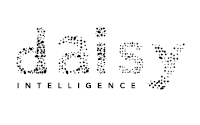
Four Reasons To Embrace AI Now to Battle Insurance Fraud
 Daisy Intelligence
Daisy Intelligence
At the Canadian Life and Health Insurance Association (CLHIA)’s Claims and Anti-Fraud Conference last month, insurance executives weren’t saying “No” to artificial intelligence (AI).
Many of them simply said, “Not yet.”
Unfortunately, delaying the embrace of AI to battle insurance fraud is a strategic misstep.
In some ways, the caution displayed by insurance firms about AI is understandable. Many are juggling multiple projects, which require a significant budget and/or other resources.
Some insurance companies, for example, are focused on refreshing their online portals. This is critical given the move towards self-service and improved customer experiences.
Others companies are looking to integrate CRM systems, marketing automation or other applications that could drive growth in 2019 and beyond.
AI, on the other hand, could be a question mark.
At first blush, AI appears so complex that many companies want more time to explore it. As well, the resources and money required to successfully embrace and deploy AI may not be clear.
Here’s the reality easily overlooked: The right AI can significantly reduce insurance fraud.
It will save them millions of dollars, give them more money to address other priorities, and allow their people to focus on high-value tasks.
For anyone who attended the CLHIA conference— as well as people within the insurance community — allow us to be clear about AI’s potential.
1. Reinforcement learning, a branch of AI, quickly and accurately identifies fraudulent activity.
Even if you don’t work in an insurance firm’s IT department or are well-versed in AI, you’re probably familiar with tools that can mine historical data to determine if insurance fraud might happen.
That’s not AI.
It is predictive analytics, an advanced form of statistical reasoning and modeling. It falls short of true AI based on reinforcement learning.
Just as a good insurance investigator doesn’t need to ask their manager questions about every claim, reinforcement learning technology autonomously detects and auto-denies fraudulent claims.
Reinforcement learning is a better approach to battle insurance fraud because it improves over time through trial and error. It finds optimal decision-making policies at a scale that would dwarf the largest fraud team at any insurance organization.
Reinforcement learning operates autonomously and it can interact with its environment in real-time or learn through simulation models.
Without human intervention, it processes massive amounts of data to determine if claims are fraudulent or authentic. Valid claims are automatically processed while fraudulent claims are blocked or flagged for further investigation.
2. The barrier to entry for using AI to battle claims fraud has dropped.
AI based on reinforcement learning can be used by small insurance firms without a large IT staff, project management office, or data scientists, as well as large insurance companies that have heavily invested in business intelligence and analytics.
The cost to use software powered by reinforcement learning technology from a company like Daisy scales to the size of the organization deploying it. As important, Daisy can be implemented with speed and efficiency that minimizes change management.
3. AI Doesn’t Replace Insurance Fraud Investigators. It Lets Them Do What They Do Best
Many insurance firms have made major investments to hire and train staff to investigate claims fraud.
Unfortunately, their investigators spend significant time chasing down claims that aren’t fraudulent, otherwise known as false-positives. A major part of the problem is they are using a variety of traditional methods, including rules that need to be continually updated as fraudsters embrace more sophisticated approaches and technology.
By leveraging the power of reinforcement learning, insurance companies can easily, quickly, and accurately identify fraudulent and suspicious activity.
This allows their investigators to spend less time looking for fraud and more time investigating fraud.
4. AI in Insurance Can Accelerate Claims Management Evolution
As many speakers at the CLHIA conference stated, insurance fraud not only damages the bottom line, it makes it challenging to focus on areas that could improve other operational areas.
If AI becomes a higher priority, the technology can provide insurance companies with a powerful and effective tool to detect and battle fraud.
At the same time, AI that leverages reinforcement learning provides insurance companies with better underwriting insight into new and renewing policyholders, as well as automating and streamlining processes. This will lower operating costs and allow insurance companies to improve risk assessment to determine more accurate pricing.
To learn more about how to tackle insurance fraud, download our free eBook.




